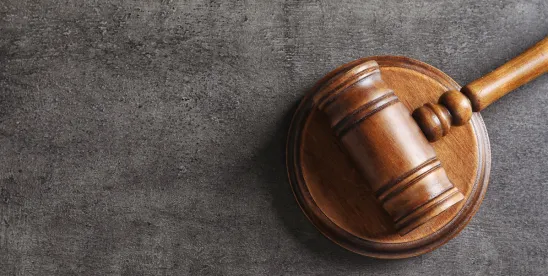You’re elated. You just won a hard-fought trial and obtained a money judgment against a corporate defendant.
With your judgment, the defendant becomes a ‘judgment debtor,’ and you become the ‘judgment creditor.’ You believe the judgment debtor has the means to satisfy the judgment, but they refuse to pay voluntarily and are stonewalling you. When this happens, it’s time to enforce the judgment.
Most attorneys do not do collection work, which is essentially what enforcing a judgment requires. This means that whoever litigated the lawsuit is most likely not the right lawyer to turn the judgment into actual cash.
Enter stage left: the collection lawyer.
Collecting on a Commercial Judgment
Collecting on a commercial judgment is usually either pretty darn easy or pretty darn hard.
The easy scenarios typically involve healthy, profitable companies that tend to pay their debts. It’s also common to see judgments that are small enough relative to the overall size of the judgment debtor. In these cases, it’s easier for them to just pay rather than to face the consequences of not paying.
You’ll usually have an even easier time if the person in control of the judgment debtor is also a judgment debtor themselves. This would happen if you sued and obtained a judgment against that person as well.
A judgment debtor who doesn’t pay when asked nicely is subject to a panoply of post-judgment collection remedies. However, those remedies will cost you more time, and unless your collections attorney will take your matter on contingency, they will also cost you more money. If collection efforts are unsuccessful, you will be throwing good money after bad.
Collection law is governed by state law, which means that your tools (i.e., collection remedies) vary from state to state. Here’s the thing: don’t assume that just because you sued in one state, you have to use that state’s collection laws. That’s not the way it works.
After your collection attorney engages in some asset searching activities to discover where the judgment debtor’s assets are, you then have to ‘go get them.’ This means that you have to ‘domesticate’ the judgment in each state where there are assets you want to try to get to. By ‘try to get to,’ we mean that you will try to seize assets and sell them or at least freeze them, so the judgment debtor cannot use them until they pay you.
Let’s use an example: say you have a judgment entered by a state court judge in New York, and that diligence reveals the judgment debtor has significant corporate bank accounts in Illinois. Here are the steps you will need to take. Ready for some fun?
Step #1 — Domesticate the Judgment in Illinois
You will need to domesticate your judgment in Illinois before you can enforce it. ‘Domesticating’ a judgment is the process of filing it in the state court for enforcement. Illinois is among the majority of states that have adopted the Uniform Enforcement of Foreign Judgments Act (UEFJA), [i] which provides a simple, uniform, and largely clerical procedure for domesticating foreign judgments. ‘Foreign’ here means a judgment entered in a federal court or a court in another state — it does not mean a foreign country. Usually, the judgment will be domesticated in the Illinois circuit court for the county in which the judgment debtor or their principal assets are located.
The UEFJA provides that upon domestication, the judgment has the same force and effect as a judgment originally entered in Illinois. It is also subject to the same procedures and defenses for reopening, vacating, or staying as an Illinois judgment.
Tactical Consideration: Be Like Braveheart and Hold, Hold, Hold
Illinois courts may stay enforcement of a foreign judgment domesticated under the UEFJA if enforcement is stayed or an appeal is pending in the original ‘foreign’ case, or if the judgment is vacated in the original court. [ii] As such, it is usually best to hold off on domesticating in Illinois until after any stay of enforcement in the original jurisdiction has lifted and the time for appeal has passed.
If you domesticate and begin enforcement in Illinois too soon and the original judgment is stayed, appealed, or vacated, you risk having to undo any actions you have taken to enforce the judgment.
Step #2 — Record a Judgment Lien Against Real Property
This is an easy next step that you can think of as low-hanging fruit.
Here, you record an official copy of the domesticated judgment in the office of the recorder of deeds for each county in which the judgment debtor owns real estate. That will create a judgment lien on the real estate that you can foreclose. [iii]
Choose Your Weapon Based on Where You Are
Different jurisdictions have a variety of procedures to aid judgment creditors seeking to enforce their judgments. In most states, judgment creditors may conduct post-judgment discovery to locate the judgment debtor’s income and assets that can be used to satisfy the judgment.
In Florida, you might use a ‘Fact Information Sheet.’ In Louisiana, you might use a ‘Writ of Fieri Facias’ to seize and sell a judgment debtor’s property or garnish their bank account or wages. In New York, you might use a ‘Restraining Notice’ to enjoin the judgment debtor or a third party from transferring the judgment debtor’s money or property.
Citations To Discover Assets: The Tool of Choice for Enforcing a Judgment in Illinois
In Illinois, all of these procedures and more are encompassed in a single device called a ‘citation to discover assets.’ [iv] Think of it as the turducken of judgment creditor remedies.
The name here is a little deceiving. It sounds like just an information-gathering tool, but it is so much more than that. In the right hands and given the right set of facts, it can be used with great efficiency to get paid.
When a citation to discover assets is served on a judgment debtor or third party, it automatically:
- Requires the citation respondent to disclose information about the judgment debtor’s assets and/or to appear for an examination under oath.
- Freezes the transfer of money or property of the judgment debtor.
- Imposes a lien upon the judgment debtor’s personal property in the citation respondent’s possession.
A citation thus preserves the status quo, pending a determination by the citation court of the rights of everyone who may have an interest in the income and assets that may be used to satisfy the judgment.
We also want to put a spotlight on the second point listed: that a citation freezes the transfer of money or property of the judgment debtor.
This has two major consequences for the judgment debtor. First, a third party served with a citation (such as a bank) cannot properly allow the judgment debtor to use any of the money in their bank account without an order from the citation court that says they can. Second, even if the judgment debtor is sitting on lots of cash, a third party who accepts it in payment (such as a retainer for legal services) without first getting permission from the citation court does so in violation of the asset freeze. All this can seriously weaken a company’s ability to operate.
Once the citation has been served, various proceedings can then follow. These may include:
- Further post-judgment discovery of the judgment debtor and third parties.
- The judgment creditor seeking penalties against a citation respondent for violation of the citation.
- The judgment creditor filing a motion for turnover of income or assets or to avoid fraudulent transfers.
- Third parties such as secured creditors and joint owners intervening in the citation proceeding to assert their rights to income or assets subject to judgment enforcement.
- The judgment debtor asserting defenses or exemptions to enforcement.
Limited Protection for Judgment Debtors’ Property
Some states have generous exemption laws allowing judgment debtors to protect substantial portions of their assets from creditors. However, like in most states, Illinois exemptions apply only to the personal assets of individual judgment debtors (this limiting protections to actual living people).
Conclusion
The basic concepts of enforcing a judgment are the same in every state, but there is a strategy in how a collection lawyer may use various remedies to secure the money your judgment debtor owes you. Like so many things in life, finding the right ‘hired gun’ to turn your judgment into cash can make all the difference.
We think you’ll also like:
- Strategic Filing: Chapter 11 Bankruptcy for Litigation Advantage?
- Who Gets Paid First (and Second, Third, etc.) in Bankruptcy
- Solvent Debtor? A Chapter 11 Debtor Need Not Be Broke
[Editors’ Note: To learn more about this and related topics, you may want to attend the following on-demand webinars (which you can view at your leisure, and each includes a comprehensive customer PowerPoint about the topic):
- Enforcement: Post-Judgment Proceedings & Collections
- Bad Debtor Owes Me Money!
- The Nuts & Bolts Of Bankruptcy Law
This article was originally published here.
©2025. DailyDACTM, LLC. This article is subject to the disclaimers found here.




 />i
/>i
